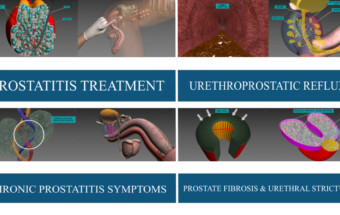Is there non-bacterial prostatitis? Why are patients diagnosed with it?
In my 25+ years of working with Chronic Prostatitis cases, I have yet to see a single non-bacterial prostatitis case. I have seen cases where I could not find a microbe at the beginning and I have also encountered many cases where no other doctor could find a microbe. That does not mean that those cases were non-bacterial and this was proven as during the examinations between the different stages of the Georgiadis Protocol, I have always found at least 2-3 microbes in most cases.
The explanation behind this effect is very simple: you cannot see what is not released no matter how rigorous the microbiological lab.
Why don’t other doctors find the microbes? There are three main reasons:
- They do not perform a prostatic pressure in advance of the patient submitting a sample.
- The perform a very inadequate prostatic massage (not pressure) that does not release the obstructed microbes in the prostatic glandular ducts. This is very important.
- Many microbiological labs cut corners when performing the sperm cultures or are not very experienced in surfacing the harder-to-detect microbes.
As such, when doctors fail to detect the microbes, they mistakingly diagnose the patient with non-bacterial prostatitis or chronic pelvic pain syndrome. For more detailed information with regards to microbe detection please check the related FAQ.
To conclude, every single Chronic Prostatitis case I have encountered has had microbes as its causing factor, even if some of them were not obvious from the beginning.



